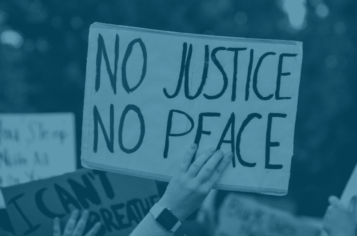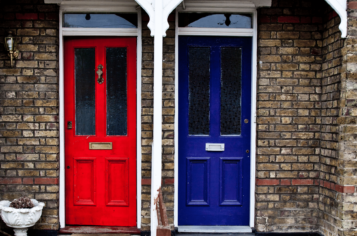This website uses cookies so that we can provide you with the best user experience possible. Cookie information is stored in your browser and performs functions such as recognising you when you return to our website and helping our team to understand which sections of the website you find most interesting and useful.

Victoria Mason explores how the practice of being present can enable us to create these spaces where we are more open to what God is doing – both in times of stillness and in the turbulence of conflict.
Welcome to the second in our series exploring the spiritual practices at the core of Difference.
The priest and theologian Henri Nouwen wrote about the role of spiritual practices: “In the spiritual life, discipline means to create that space in which something can happen that you hadn’t planned or counted on.“
The practice of being present
Being present – showing up with our minds as well as our bodies – is critical to any relationship. In order to connect with others, we need to be able to give and receive from one another. Distance and distraction make that much harder. Studies by the Massachusetts Institute of Technology (MIT) and the University of Alberta suggest that a face-to-face conversation is 34 times more effective than an email and that digital distraction negatively impacts our relationships.
Choosing to be present can be even more key in situations of conflict and division. When difference makes us fearful or conflict makes us anxious, our instinct is often to withdraw. But evidence shows that doing the opposite – being fully present with the other person, avoiding distraction – can be transformative. A study by Harvard Business School found that deep, active listening helped people engage with complexity and avoid polarisation.
Distance and hurry are ideal conditions for conflict. Giving our full attention to the one we disagree with, listening with intent, taking time to share space together – all these enable us to encounter one another three-dimensionally and to build trust.
This choice to embrace fracture and complexity, rather than turn away, is something we see most powerfully of all in God’s own engagement with us. In Jesus, God steps into the complexity and messiness of human life. Not only that, but we see Jesus walking towards – embracing – conflict when it arises.
Choosing presence over avoidance in situations of conflict
When Jesus is invited for dinner at the house of Simon the Pharisee (Luke 7:36-50), an unspoken conflict breaks out, simmering below the surface. Jesus’ response is not to turn away or pretend nothing is happening but to bring it out into the open. By choosing to stay present, he is able to open up a new space of encounter, through storytelling and asking questions.
To choose presence over avoidance in situations of conflict is therefore not only pragmatic. It can become, in itself, a spiritual practice.
The bishop and theologian Rowan Williams gives voice to this idea:
‘…there is no contrast, no tension really, between holiness and involvement in the world. On the contrary, the most holy, who is Jesus, is the most involved, most at the heart of human experience. And we really misunderstand the whole thing very seriously if we think that holiness means being defended from our own humanity or other people’s humanity.’
When we choose to be present, instead of turning away from conflict and division, we often find that God has already shown up before us.
Archbishop Justin Welby, in this film, explains the importance of Being Present for peacemaking as followers of Jesus.
Of course, as with all spiritual practices, wisdom is key. There will undoubtedly be times when we cannot and should not remain present. We cannot spend time constantly in situations of conflict or stress. When we know we cannot respond constructively or healthily to the conflict in front of us, or when we have given so much that we have nothing left in the tank, we might need to step back, recover and heal. This too is a spiritual practice.
Being Present is critical for our relationship with God
The transformative ministry of Jesus’ presence with others took place in the context of his retreats to pray alone and with others. The habit of being present is not only for our relationships with others but is also critical for our relationship with God – we need to really ‘be there’ when we’re trying to spend time with Him. This is one of the reasons many traditions highlight the importance of simple practices like becoming aware of our breathing or our bodies before we start to pray. Archbishop Desmond Tutu wrote:
“I am deeply thankful for those moments in the early morning when I try to be quiet, to sit in the presence of the gentle and compassionate and unruffled One to try to share in or be given some of that divine serenity. If I do not spend a reasonable amount of time in meditation early in the morning, then I feel a physical discomfort — it is worse than having forgotten to brush my teeth! I would be completely rudderless and lost if I did not have these times with God.”
Whether we find ourselves in the midst of conflict or at a point where we need to take a step back, there is great power in simply showing up, open to where God is drawing us in this moment.

Victoria Mason is Editorial Manager and Theological Lead for the Difference team.




